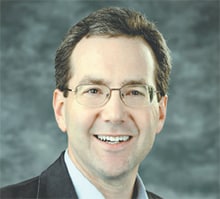
Build a time machine. A time machine so you can be there for your family, making all the important decisions and relieving their burden while they grieve. Build an estate plan to ensure that your wishes are followed and your loved ones are taken care of after your death. Your estate plan puts your last wishes, hopes, desires and choices in place for your family so that instead of difficult decisions to make, they have a clear path to follow.
There are many estate-planning vehicles available, but two of the most common are wills and trusts. A last will and testament gives instructions as to how to distribute your property and nominates an executor to act on behalf of your estate. Once the probate court gives the go ahead, your executor will carry out the instructions in your will.
The term living trust describes a trust that you establish while you are living and it can serve as a will substitute. You set up the rules for the trust and appoint a person to ensure that those rules are followed. That person is the trustee. In most situations, while you are living, you receive the benefit from the trust and can serve as the trustee. The trust can also contain instructions as to the distribution of your property upon your death and name a successor trustee who takes your place to make sure that your instructions are followed. A living trust can be revocable; however, when asset protection or Medicaid qualification may be issues, an irrevocable living trust is frequently more appropriate.
A will may appear to be the more straightforward solution, however, a living trust gives you advantages during your life that a will cannot, and a living trust can efficiently handle distributions at death without the delay and uncertainty of probate court proceedings. That said, living trusts require you to invest greater time and effort now. To be effective and work outside of probate, you must undertake the administrative burdens of creating your trust and re-titling assets now to relieve your loved ones of the burden of doing it when you die. It’s a time machine that lets you make the decisions and arrangements that protect your family when they are most vulnerable. An effectively crafted estate plan lets you travel to the future to be there for them even after you are gone.
Everyone should have this kind of time machine that allows you to care and provide support for your family across the years. The question becomes: will your time machine be powered by a will or a living trust? In the end, the answer depends on your needs, the needs of your family, and the nature of your assets. Rather than assuming that a will is sufficient or assuming that a trust is required, begin your planning by assessing your situation and deciding what it is you want to happen. Only then can you assess which vehicle can best achieve your goals.
Building your own personal time machine is not a do-it-yourself project. Consult with competent legal counsel regarding the advantages and possible disadvantages to you with each approach. Working with a professional gives you the benefit of experience and insight to avoid pitfalls and ensure that the details are properly managed.
James M. Miskell received his law degree from the University of Georgia in 1993. His Asset Protection, Estate Planning and Elder Law practice has offices located in Lawrenceville and Johns Creek. He offers educational workshops and free consultations to assist clients as well as fellow professionals in creating individualized solutions. Visit his website: www.letstalkestateplanning.com.

